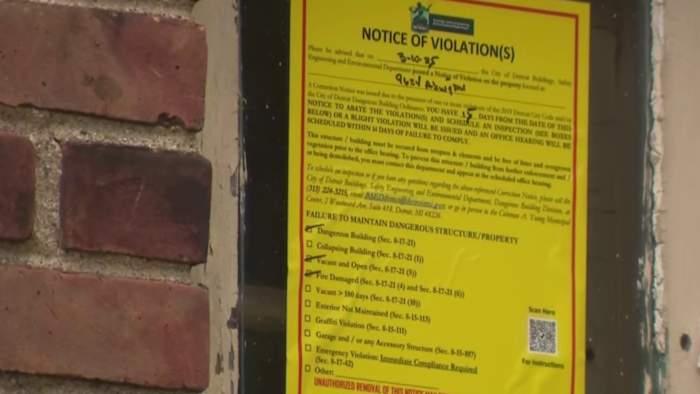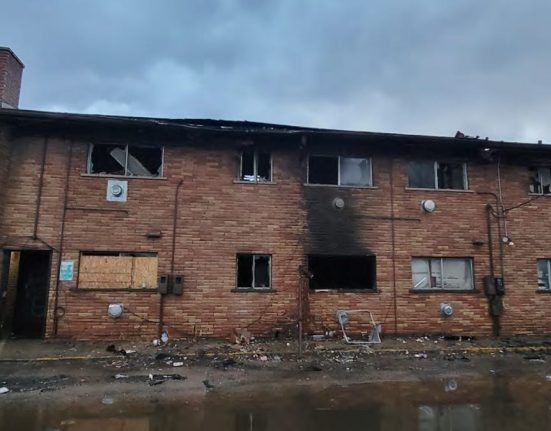DETROIT – Detroit officials launched what they’re calling the city’s largest-ever nuisance abatement lawsuit against RealToken, a cryptocurrency-based real estate platform, citing widespread unsafe living conditions and code violations across hundreds of properties.
The lawsuit targets more than 400 homes owned by RealToken, which has accumulated approximately $500,000 in violations for neglect and unsafe conditions.
City officials claim the company operates through a complex network of 165 different LLC entities to evade accountability.
“We’re talking about exposing these tenants, most vulnerable tenants, to unsafe conditions,” Detroit City Council member Angela Whitfield Calloway said. “And they deserve housing dignity like we all do.”
The company’s unusual business model allows multiple cryptocurrency investors to own shares of individual properties, creating a complicated ownership structure that city officials say makes accountability difficult.
“It’s huge, especially when you’re purchasing these properties with cryptocurrency,” Whitfield Calloway said. “And so 100 owners or investors can own one property.”
Sylvia Young, who rents one of RealToken’s properties on the west side, describes serious maintenance issues.
“My roof is leaking, the back of the house is coming down,” Young said.
Detroit Corporation Counsel Conrad Mallett emphasized the city’s stance on property owner accountability.
“You should not be able to change the name of your LLC if you owe taxes, if the property is not in compliance, and if you do that, you ought of then be held accountable,” said Mallett.
In response to the city’s claims, RealToken acknowledged in a statement past management issues but defended its commitment to Detroit.
The company claims it has been “victimized by several unscrupulous property management companies” that were paid to oversee properties and make repairs.
Since December 2024, RealToken said it has established its own property management company and begun addressing violations.
The company states it has “made complete repairs to over several dozen properties, addressed hundreds of blight tickets, and has contractor teams in the field every day.”
The case highlights broader concerns about property management and tenant rights in Detroit, where 60 percent of residents are renters.
City officials emphasize that while they welcome investment, it must be accompanied by responsible property management.
“This practice will not continue here in the city of Detroit. They got to move on somewhere else,” Whitfield Calloway said.
Copyright 2025 by WDIV ClickOnDetroit – All rights reserved.







